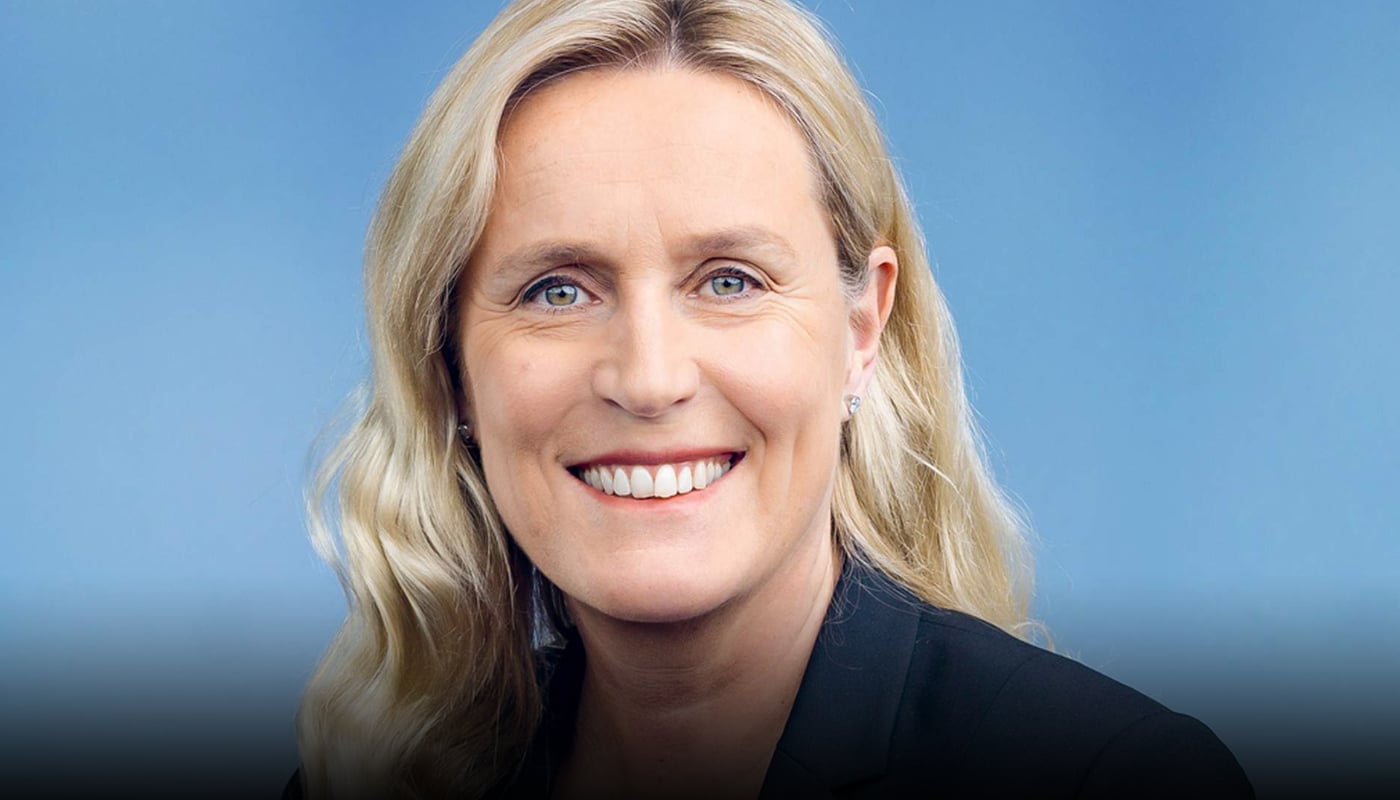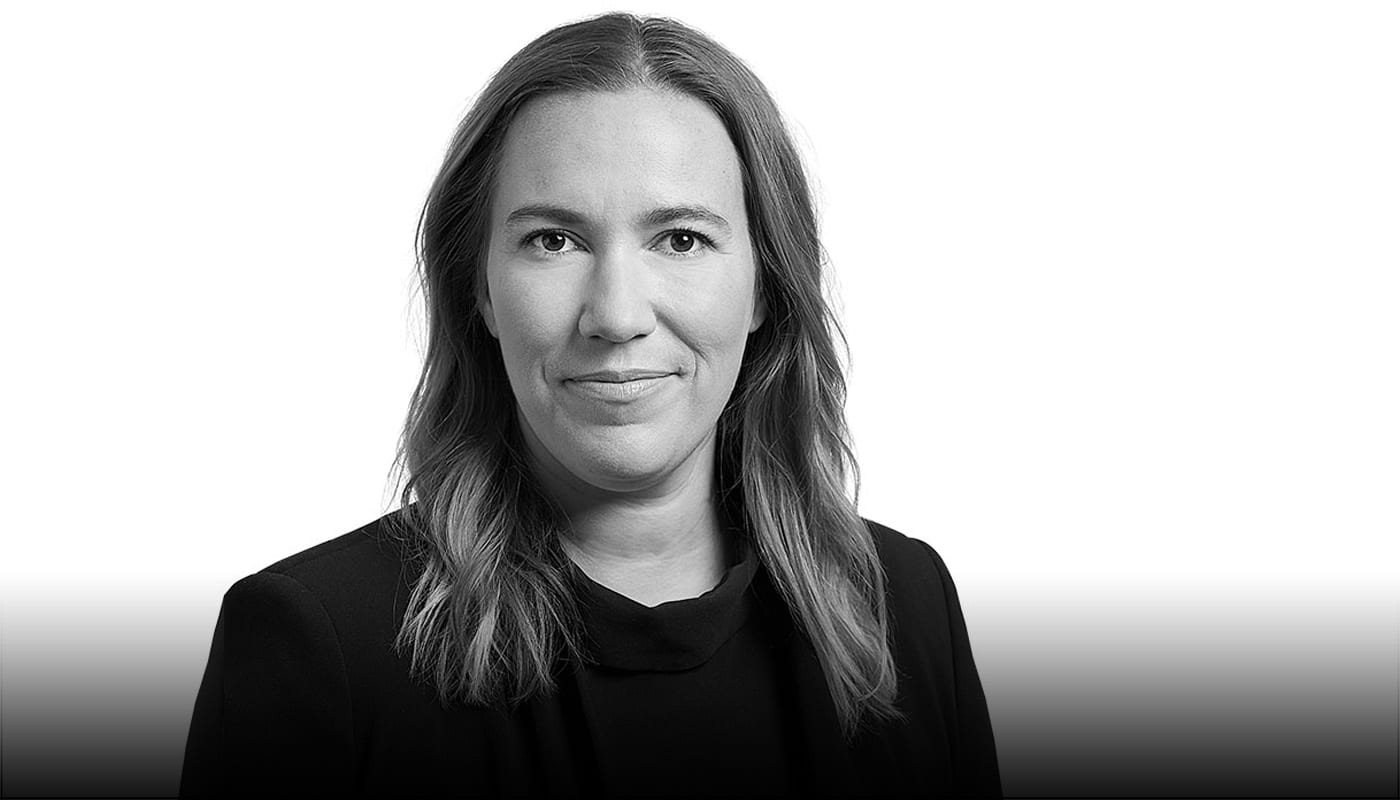The question which role luck plays in personnel selection is Chengwei Liu’s speciality. The luck researcher is convinced that companies could advance their diversity if they skilfully use the principle of chance for their selection processes. The Professor of Strategy and Behavioural Sciences at the Business School ESMT Berlin will talk about this on 17 March in an online lecture at herCAREER, a platform for female career development. We caught up with him in an interview and talked about luck, diversity and personal career strategies for women.
Luck as a career booster? Why chance plays a major role in top management
herCAREER: Chenwei Liu, you are a professor at the ESMT Business School in Berlin. Do you owe this to your skills and good performance or is it just luck?
Prof. Chengwei Liu: A combination of both, probably. Of course, I would like to believe that they hired me because I was the best candidate of all. But that is unlikely. For a job like this, there are several very good candidates at the shortlist. Maybe I was lucky or had a good day when I had to give my application talk. Or my competitors were unlucky. What speaks for my performance: Whereas all my colleagues focused on standard topics of business strategy, early on I consciously positioned myself differently. I decided to investigate the topic of luck, for example in career development. That was not so easy at first. I had to find ways to explore luck. But I succeeded and it has since become my research identity.
herCAREER: However, it is not guaranteed that people with different skills will gain more opportunities in top positions in the economy. It is well known that people tend to prefer candidates who are similar to them…
Prof. Chengwei Liu: That is true. Research shows that being different can confuse others. There is a great risk of being misunderstood. The other point of view can hurt, so people resist it. It’s about finding a good balance. You have to be as different as you legitimately can be. That’s what makes a “smart contrarian”.
herCAREER: How do you figure out how far you should go with being different so as not to damage your career?
Prof. Chengwei Liu: One of the lessons is that if you act exactly like your competitors, you can forget about success. But if you are different from the majority, it usually means you are wrong. So, the question is how to be different from the majority and still be correct. Like a scientist, you have to investigate whether you can support your own contrary opinion. In doing so, you learn to think differently in a systematic way. You have to consider different interactions. Sometimes you have a brilliant idea, but it triggers fear of change in the target group or investors see more risks than opportunities. We should check whether the obstacles can be removed. If not, we have to wait and see if the right moment comes. Otherwise, there is a great risk of failure. A “smart contrarian” tries to foresee all this.
herCAREER: The appreciation for unconventional thinkers in companies has so far been rather limited. What do companies gain when people think differently?
Prof. Chengwei Liu: When we think about complicated problems, we don’t need the best person, but a community diversity. A diverse team has a very rich repertoire, so they understand how to approach things from different angles. But people who are not in the majority are usually disadvantaged – i.e. women in leadership, but also other non-stereotypical candidates for a corporate culture. In a world that is changing a lot, diverse companies will be more successful in the long run, but it takes time. In truly diverse teams, serendipity moments are more likely. You can’t predict what will come out of a particular combination of different people. But diversity often brings breakthroughs in product development or scientific discoveries.
herCAREER: How diverse should teams be – in terms of gender or different perspectives – to really make those serendipity moments happen?
Prof. Chengwei Liu: When it comes to solving business problems and incorporating diversity, what matters most is different ways of thinking. It may be that an all-male team meets this criterion. The Netflix Prize comes to mind: the company launched a crowdsourcing competition in 2006 to improve its recommendation engine. After three years, an all-male team won, but the team members had different backgrounds. They had some diversity in the way they looked at the problem. But today, if a company sets up all-male teams, it can face harsh criticism, even if the diversity in the team is actually high. This has to do with the fact that it is not only creativity that counts. Diversity is also a question of justice.
herCAREER: Which aspect do you think companies should focus on – equity or innovation?
Prof. Chengwei Liu: I just want to point out the difficulty. And the responsibility that companies have towards the teams. They should protect them from criticism. They have to be aware of the purpose they are pursuing with diversity. Often it is not about cognitive diversity, but about fighting racial and gender bias and creating equal opportunities. If women and minorities had the same development opportunities as their majority counterparts, which are people who are currently at an advantage because of our socio-economic history, they might also have more professional opportunities in the future. So, the challenge is for a company to understand what exactly it is trying to achieve. Is it to solve a social problem from an equity perspective? Or does it want to solve complicated business problems with diversity?
herCAREER: Presumably, it would then also make sense to differentiate according to areas where one or the other is more important. Are HR departments even capable of doing this? After all, their systems, structures and processes should often be the same for everyone.
Prof. Chengwei Liu: That is definitely one of the barriers. It is almost impossible for HR to allow all-male teams. Companies want to visibly reflect diversity to the outside world. This also has to do with ESG criteria – diversity plays a role in the S, good working conditions. This often leads to greenwashing and a lot of accounting exercises on how many men and women are represented in certain areas. Such coercion can have unintended consequences, such as preventing serendipity moment in product development. This is a real dilemma. I am not saying what is right and what is wrong here. Only: companies must be aware that a rigid policy in one direction can close doors to the other.
herCAREER: Another focus of diversity is to make people feel valued in their individuality, regardless of their gender and background. What does this mean for the composition of teams?
Prof. Chengwei Liu: Of course, it’s of no use if you hire women only because of their gender. It is about creating an inclusive environment in which women or counter-stereotypical candidates can shine in the long run. Many companies claim that they can provide such an environment, but very few actually succeed. This is because it requires a lot of investment and support from employees. Another factor is psychological safety. Sometimes this inclusive environment only emerges when a minority is no longer a minority, for example when there is not only one woman in the team. That’s where you have to look at the threshold effect. A rule of thumb is that you need at least one-third of the minority representatives so that they don’t feel they have to adapt their behaviour in the face of the dominant group. An example is the implementation of affirmative action in the US. A recent longitudinal study also shows that it is often one step forward and two steps back. When women are hired, but are the only ones among men, they often don’t get promoted because colleagues don’t really support them. They are not explicitly discriminated, but the majority can still sabotage the minority.
herCAREER: Let’s move on to your personal field of research: luck. You say that many top managers underestimate the power of luck. What role does that play?
Prof. Chengwei Liu: When selecting candidates, one often concentrates on the best. But especially in top management, it is not the outstanding competence that is the most important factor. It is more important to fit a certain stereotype, to have a high willingness to take risks or simply to be lucky. That is extremely dangerous. Because these people get a lot of power, status, benefits and bonuses. This boosts their ego and self-confidence, even though it is often not justified. This can prevent sustainable corporate performance. Luck is the most underestimated factor. Yet its importance increases the higher one climbs in the hierarchy. This has to do with the paradox of skill.
herCAREER: You have to explain that: What is the paradox of skill?
Prof. Chengwei Liu: The phenomenon can be observed in professional athletes, but also in the selection processes of managers. When it comes to an entry-level position, you have many applicants with a wide range of skills. They go through an assessment centre and have to reach a certain threshold. The survivors of these selection rounds are all very good according to the selection criteria set by the company. Here’s comes the side effect: the survived candidates become more and more similar in their skills and also in their characteristics in terms of gender and demographic background. The differences among them are tiny. So, if everyone is getting better at one particular thing, luck plays a bigger role in the selection process. Top managers think they are better than they actually are.
herCAREER: How can the enormous differences in performance between different companies be explained then?
Prof. Chengwei Liu: It is often simply a matter of being in the right place at the right time, being lucky with exchange rates or lucky that no natural catastrophes happen. This is beyond the control of managers. But our compensation systems and the status symbols of power speak a different language. This creates a corporate culture in which the survivors at the top, mostly men, create a barrier that is difficult to overcome.
herCAREER: So, you think that if companies took luck more seriously, they could reduce arrogance in management, but also stereotypical bias in terms of gender, sexual orientation or origin? How might they go about it?
Prof. Chengwei Liu: On the one hand, one can try to make all this stereotype queue less salient. For example, a CV blind policy can help, i.e. that companies hide certain information in application documents – characteristics such as gender, ethnic origin, age or the address. In France, for example, where racial bias and segregation are very strong, the postcode of applicants reveals their socio-economic status to some extent. When this information is hidden, decisions are more likely to be made on the basis of merit. There are also behavioural techniques that can be used in the interview or assessment centre to let the real merits come through. But the longer a company exists and the more fixed its culture, the harder it will be. Younger companies and start-ups have a competitive advantage here.
herCAREER: Margaret Osterloh and her research colleagues recommend that the recruitment of managers should follow the random principle. In an experiment, they were able to show that people selected by lot are less likely to fall into a kind of self-overestimation trap. What do you think of that recommendation?
Prof. Chengwei Liu: It’s a terrific experiment, which is quite related to my ideas and my research. Random selection has a long tradition in human societies. Even in ancient Athens and Venice, leaders were chosen by the luck of the draw. Blind luck can especially reduce bias against certain people. Moreover, random selection saves a lot of time and money. Selection experts would then only have to fish out the bad applications that do not have the necessary skill level. But such a procedure has not yet been implemented in practice. Most HR managers find the idea too wild. This is probably also due to business education, which gives students the feeling that they have to make decisions based on some kind of rational logic. Of course, this is very important at entry levels. But random selection can be increasingly relevant for higher levels of selections in order to overcome biases. Random selection does not guarantee best solution, but it often outperforms solutions that are polluted by biases.
herCAREER: As long as this is not accepted, what can women themselves do to help their career luck?
Prof. Chengwei Liu: It depends on where they are in their career and what path they want to take. When starting out, what counts most are the skills needed to get ahead. In start-ups, it is more important to be a generalist and excel in different skills. In big companies, you have to specialise more. In the end, it is crucial to have a good balance between specialised and general skills. It is important to manage the development of your own skills well, otherwise you can easily fall into the so-called competence trap: That you are only good at one thing and lack the skills for the next career level. The principle of the second curve helps here: We should develop a second competence curve before we have reached the peak with the first one. The problem with this is that when we achieve expert status in a certain thing, we feel good. It takes effort to try something new, which is difficult for us at first and can bring frustration.
herCAREER: And when you’ve already made it to the highest levels of leadership, luck comes into play. Can you actively use chance in your own favour or are you simply at its mercy?
Prof. Chengwei Liu: In the end, the competitors in top jobs also do a lot for their competence development. They, too, have worked on the second curve and then, indeed, a lot depends on luck. The only thing we can do for our luck is not to give up. There is an interesting study that shows that men and women handle defeat in promotion differently. When men are rejected, they blame the failure on others and do not look for the causes in themselves. Women, on the other hand, believe they are not good enough. This leads them not to try again at the next opportunity. I recommend all women not to be discouraged by rejections. It’s like playing the lottery: Even if you lose, you keep investing. If you keep buying, you increase your chances of winning.
About Chengwei Liu
Trained as an economist in Taiwan, Chengwei Liu (Ph.D., Cambridge) is an associate professor of strategy and behavioral science, and faculty lead of the Global Online MBA Program at the European School of Management and Technology (ESMT Berlin). He held research and teaching positions at Cambridge, Oxford, MIT, Wharton, NYU, INSEAD, National University of Singapore, Peking University, Warwick, and won more than 20 research and teaching awards. Thinkers50 name Chengwei a leading management thinker and Poets&Quants name Chengwei a Top 40 under 40 MBA Professor. Chengwei’s book „Luck: A key idea for business and society“ summarizes his research on how to quantify and strategize with luck in sports, investment and business, as well as its implications on judging merit and social inequality. His current research focuses on how organizations should manage diversity in the age of algorithms and how to be a smart contrarian.
On Thursday, March 17 from 1 to 2 p.m., Prof. Chengwei Liu will speak in an online event on the topic “Luck or performance? What really matters in a leadership career”.
Here you can find the current press release of Prof. Chengwei Liu.
The interview was conducted by Stefanie Hornung.












